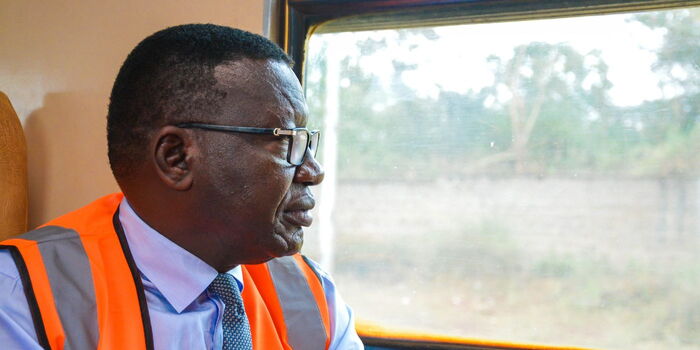Our Terms & Conditions | Our Privacy Policy
World Bank to Inject Billions into Nairobi’s New 58Km Commuter Rail Project
The Nairobi transport system is set for a transformative shift as the World Bank prepares to invest significantly in a new 58-kilometre commuter rail project.
This initiative, confirmed by Transport Cabinet Secretary Davis Chirchir, aims to increase commuter usage from a mere 20,000 to an astounding 100,000 passengers daily. This leap represents a robust commitment to revolutionising urban mobility in Kenya’s bustling capital.
The announcement came during the unveiling of new luxury coaches on Wednesday, October 2. The partnership between the World Bank and the Kenyan government is already in motion, with both entities collaborating on the Kenya Urban Mobility Improvement Project (KUMIP).
This project seeks to enhance urban transport services within the Nairobi Metropolitan Area, focusing on building institutional capacity for resilient and environmentally friendly transport solutions.
A Nairobi Commuter train making its way to a railway station, Wednesday, October 2.
Photo
Chirchir
The Nairobi Commuter Rail development is a cornerstone of the Nairobi Metropolitan Transport Master Plan. Kenya Railways is spearheading the rehabilitation and modernisation of the existing commuter rail network, which spans 139 kilometres across four corridors in the metropolis.
The initiative involves upgrading railway lines, transforming halts into mini stations, modernising the Nairobi Central Railway Station, and expanding the rolling stock.
So far, Kenya Railways has successfully completed the construction and modernisation of 14 stations, with six more currently undergoing upgrades. These efforts are designed to alleviate road congestion in the city while providing safe, reliable, and affordable transport for residents.
“As a Ministry in partnership with the World Bank, we have a robust plan to construct a new 58-kilometre rail network to increase rail transport usage from 20,000 to 100,000 commuters daily. This will be a significant contribution to reducing emissions and combating climate change,” stated CS Chirchir.
This isn’t the first major investment from the World Bank in Kenya’s transport infrastructure. In 2012, it approved US$ 300 million about Ksh38.7 billion in the current exchange rates for the National Urban Transport Improvement Project (Nutrip).
This funding encompassed plans to develop commuter rail services not only in Nairobi but also in Mombasa and the Kisumu region, alongside bus and highway projects.
The upcoming investment will further support the completion of the US$ 335 million Nairobi commuter rail project. This includes the construction of a 7-kilometre branch to serve Jomo Kenyatta International Airport and the upgrade of 160 kilometres of metre-gauge lines. Kenya Railway Corporation (KRC) is tasked with building four stations on the new and upgraded lines, projected to boost capacity from 5 million to an impressive 60 million passengers annually.
Transport CS Davis Chirchir inside a Nairobi Commuter train, Wednesday, October 2.
Photo
Chirchir
Images are for reference only.Images and contents gathered automatic from google or 3rd party sources.All rights on the images and contents are with their legal original owners.



Comments are closed.